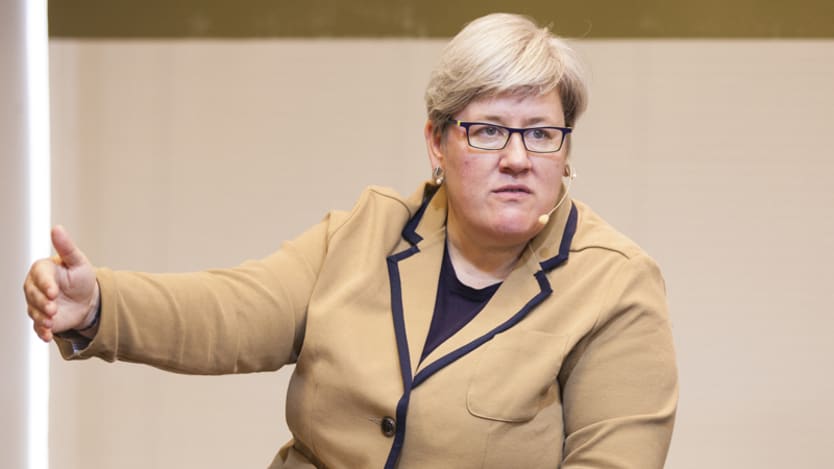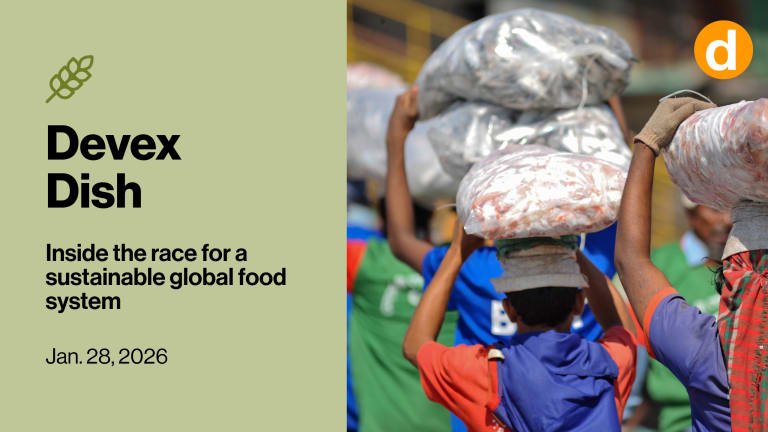
WASHINGTON — The amount of funding going into clean cookstoves in countries where the energy access gap is most pronounced “is not even in the same ballpark” as what is required, according to sustainable energy expert Rachel Kyte, who said the sector needs a “wholesale reassessment.”
This is one of the conclusions reached in the “Energizing Finance” report from Sustainable Energy for All released Monday. The report finds that levels of international and domestic financing aimed at closing the energy access gap — and particularly the amount being directed to clean cookstoves — is falling far below what is needed to reach Sustainable Development Goal 7, which calls for universal access to energy by 2030.
The report analyzes flows of international and domestic finance toward increasing energy access to 20 countries in sub-Saharan Africa and Asia between 2013 and 2014 and finds that support for clean cookstoves was “shockingly low” at only $32 million during the period. The International Environment Forum estimates $4.4 billion is needed annually to meet clean cooking needs.
“Indicators show that the problem is becoming bigger rather than smaller.”
— Rachel Kyte, U.N. special representative and CEO of Sustainable Energy for AllKyte — a special representative of the United Nations secretary-general for sustainable energy and CEO of Sustainable Energy for All, or SEforALL — told a press briefing that lack of funding in the sector is undermining the SDGs. SEforALL is a multi-stakeholder initiative to drive the U.N.’s SDG energy agenda released in 2011.
Clean cookstoves remain “one of the biggest challenges in delivering the SDG on energy, and it is one of the objectives where the indicators show that the problem is becoming bigger rather than smaller,” she said.
However, current financing levels are far from where they need to be in order to address the problem. “We need to have a wholesale reappraisal of this sector,” she said, adding, “we need to restart the process … $32 million is not going to move the needle.”
Currently, more than 3 billion people live without access to clean cookstoves, according to the Global Tracking Framework, a joint initiative by the World Bank and the International Energy Agency to monitor progress toward the sustainable development energy goals.
Experts agree that clean and efficient cooking facilities can play an important role in helping to meet a number of SDG targets, including those related to sustainable energy, the environment, and health. Clean cookstoves can reduce the amount of charcoal and other fuel being burned in order to cook food, which results in indoor air pollution that kills millions every year and releases CO2 into the atmosphere.
Getting clean cooking on the government agenda
Restarting the sector will require tackling a number of key bottlenecks. The first is that with a few notable exceptions, including India and Indonesia, there is a lack of political support and prioritization for the clean cooking agenda in most of the countries surveyed, according to Kyte, who said a “step change in the level of political commitment” for the sector is needed.
Another major stumbling block, which feeds into the first, is that investors have tended to focus on cooking technologies, such as improved cookstoves, while neglecting the cleaner fuels market. “By focusing on cookstoves we may have ... missed [the] problem of access to clean fuel sources,” Kyte said.
In response, she said it is time for “frank dialogue” between the different actors in the clean fuel space — including those working on LPG gas, biogas, ethanol, and solar induction technologies — in order “to get a range of fuel options into cities and rural areas,” she said.
Building markets
The next step will be to develop “market-based strategies to deploy a range of clean fuels at scale and speed,” Kyte said. This will require “industry-building” initiatives from national governments, as well as efforts to raise consumer awareness about the benefits of clean cooking. Development finance institutions will also need to support these market creation activities, Kyte explained.
Clean cookstove startup companies also need to be supported. There are far fewer currently operating compared with, for example, the electricity sector, Kyte said, and as a result there are fewer places for would-be investors to put their money.
At the same time, enterprises in the vast majority of countries surveyed said they faced significant challenges in getting reasonably priced finance to develop their businesses. “We need to look really hard at how to create a whole new generation [of startups] in the clean cooking space,” Kyte said.
Furthermore, the cost and size of the transactions involved — which tend to be very small scale and expensive — also appears to put off many investors, according to Barbara Buchner, executive director of the climate finance program at Climate Policy Initiative.
Devex is on the ground in New York at Global Goals Week, bringing you daily morning briefings with everything you need to know — whether you're here in person or following the events from afar. Sign up for our daily briefings.




